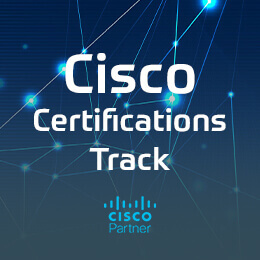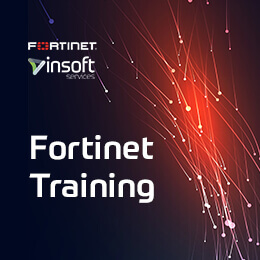In this age of the internet, technology, cloud and large volumes of data; technological relevance and continuous learning are key for engineering professionals. What are some of the technical skills that engineering and IT professionals need to acquire for a solid career progression in this new decade?
In this article, we explore some of the most popular and relevant foundational technical engineering specializations that could very easily set you up for growth.

Main Vendors and Specializations for Engineering Professionals
1. Cisco Engineering Technologies
Cisco is a global leader in IT and networking solutions. Cisco helps companies of all sizes transform how people connect and communicate. You can learn CCNA, CCNP and more from the Cisco partner training organizations.
In the entry level CCNA course, for instance, you will start by learning:
- Network performance optimization;
- Internet addressing;
- Subnetting and super-netting;
- Analysis of data traffic, monitoring the network and ensuring standards are in place;
- Configuration and troubleshooting of basic operations in a switched and routed network;
- Configuration, monitoring, and troubleshooting of Access control lists for IPv4 and IPV6 networks;
- Configuration and verification of Internet protocols e.g OSPF and DHCP in network topologies.
Insoft provides authorized Cisco certification courses that provide you with global opportunities after successful completion and passing of their exams.

You also have the option of specializing in a diverse number of fields depending on your interests, e.g Wireless communications, Voice, Collaboration, Routing and Switching, Security, Data Center, Enterprise and even Network Programmability and Automation by earning the DevNet certification.
2. Fortinet Cyber Security Technologies
Cybersecurity is rapidly evolving, and professionals must keep up-to-date with the ever-changing security landscape.
With the Fortinet security certifications, you’ll learn how network security professionals respond to an imminent, active or recent cyber threat. You’ll explore how to go about resolving attacks and how to complete legal investigations of any potential cybercrime.
In an entry level Network Security Expert (NSE 4) course for instance
You will learn:
- How to use basic FortiGate firewall features, including security profiles;
- In interactive labs, you will explore firewall policies and the security fabric;
- User authentication, SSL VPN, dial-up IPsec VPN;
- How to protect your network using security profiles such as IPS, antivirus, web filtering, application control, and more;
- How to use advanced FortiGate networking and security;
- Advanced routing and transparent mode;
- Redundant infrastructure, site-to-site IPsec VPN, single sign-on (SSO), web proxy, and diagnostics.
These administration fundamentals will provide you with a solid understanding of how to implement basic network security. Topics include features commonly applied in a complex or larger enterprise or MSSP network. Businesses of any size need a cyber-security specialist that can help adapt to the ever-changing threat landscape.

As a Fortinet Premier ATC (Authorized Training Center), Insoft Services delivers Fortinet training within the whole Fortinet Security Fabric. Fortinet credentials provide you with skills in cybersecurity techniques from fundamentals to the mastery of product-specific skills. Through hands-on labs and expert-led training, you will learn how to approach cybersecurity offensively and defensively. You can find more Insoft Services Cybersecurity training here.
3. Microsoft Azure Technologies
According to a Gartner forecast, the cloud computing industry is expected to see three times the growth of other IT services through 2022. Cloud computing skills are increasingly becoming a necessity in this modern age, even as we move into the future. Microsoft’s Azure cloud services are especially popular for enterprises with a suite of Microsoft services already in use by the organization e.g Microsoft Teams and office.

To get started, you can sign up for the Microsoft Azure Fundamentals course which will equip you with the underlying foundational knowledge to implement the core Azure infrastructure, consisting of virtual networks and storage. With this foundation, you will learn how to create the most common Azure services, including Azure virtual machines (VMs), Web Apps, and SQL Databases either as an administrator or developer.
4. Amazon AWS Technologies
Amazon AWS cloud computing platform still is the market leader among cloud providers. AWS offers 11 certifications starting with the foundational Certified Cloud Practitioner exam and building to advanced levels with the Certified DevOps Engineer exam.
For example, the System Operations on AWS course provides Systems Administrators (and/or Developers) with the knowledge in automatable and repeatable creation and deployment of networks and systems on the AWS platform.
The course covers common techniques used throughout the industry for configuring and deploying systems. Attendees will learn how to use standard AWS infrastructure such as Amazon Virtual Private Cloud (VPC), AWS Cloud Formation to produce stacks of AWS resources and deploy and monitor Amazon EC2 instances.

The Architecting on AWS course covers the fundamentals of building IT infrastructure on AWS. The course teaches best practices and solutions for architects on how to optimize the use of the AWS Cloud.
It also provides an understanding of AWS services and how these services fit into cloud-based solutions. In these Cloud Computing courses, you will gain skills on how to design, build and implement cloud technologies strategy for your company. Also, you or your team will learn about security management and cloud virtualization.
5. VMware Technologies
VMware software powers the world’s complex digital infrastructure. The VMware compute, cloud, mobility, networking and security offerings provide a dynamic, consistent virtualized network digital foundation to deliver the apps that power business innovation.

The VMware-NSX training focuses on installing, configuring, and managing VMware NSX. This course presents VMware NSX as a part of the software-defined Data Center. You will learn how to use logical switching in VMware NSX to virtualize your switching environment.
The course also details logical routing to enable you to dynamically route between different virtual environments. And you will learn how to use gateway services, firewall configurations, and security services to help secure and optimize your VMware NSX environment.
Access to a software-defined Data Center environment is provided through hands-on labs to reinforce the skills and concepts presented in the course. This course provides the skills needed to manage either an NSX V6.2 or V6.3 environment. You can find our whole range of VMware technologies training here.
Other Technologies and Specializations for Engineering Professionals
6. The Internet of Things (IoT) Solutions
We’re currently witnessing the rise of a connected devices world. Starting this year, it is anticipated that there will be a surge in real-world deployments of IoT systems. However, IT professionals often have little or no experience working with embedded systems, sensor networks, actuators, real-time systems, and other components that are common to IoT.
With the CertNexus (CIoTP) Certified Internet of Things Practitioner training, students are equipped with the foundational knowledge to understand how these components work with other systems that IT professionals typically have more experience working with—such as networks, cloud computing, and applications running on servers, desktop computers, and mobile devices.
In this course, students learn general strategies for planning, designing, developing, implementing, and maintaining an IoT system through various case studies and by assembling and configuring an IoT device to work in a sensor network. Students will create an IoT device based on an ESP8266 microcontroller, implementing various common IoT features, such as analogue and digital sensors, a web-based interface, MQTT messaging, and data encryption.
Best IoT (Internet of Things) training for beginners
With the Insoft Services’ IoT training, you will also learn how to manage industrial networks for manufacturing with Cisco technologies, develop, create and implement IoT solutions. IoT requires the development of new competencies for all employees.
7. Redhat Ansible
Ansible is a multivendor, simple and powerful IT automation engine. It’s programmable and relatively easy to learn. It can be used to automate cloud provisioning, configuration management, application deployment among many other IT functions.
Ansible uses a domain-specific language called YAML that is used as a method of defining an automation workflow or providing a data set to work with. Ansible is an IT automation tool that deploys software, configures systems and organizes more complex IT functions such as rolling updates or continuous deployments. Ansible could, for instance, be used to spin up a Kubernetes cluster! In addition, Ansible can run on several cloud platforms, including Amazon Web Services and Microsoft Azure.
8. Kubernetes and DevOps
Over the past year, we’ve seen applications increasingly being packaged as microservices; containers and deployed to multiple public clouds using orchestrators such as Kubernetes and Docker. Moving to 2020 we’ll continue to see the growing adoption of containers; a technology enabling developers to manage and migrate software to the cloud. Containers also enable portability between different cloud platforms e.g Microsoft Azure, Google Cloud, and Amazon’s AWS.
Kubernetes is a portable, extensible, open-source DevOps tool for managing containerized workloads and services that enables both declarative configuration and automation. It also can run on cloud platforms such as AWS and Azure. DevOps is quickly and increasingly infiltrating every aspect of IT service delivery, for instance, network engineering in a new movement referred to as NetDevOps!
With Insoft Services training, you will gain valuable, in-depth knowledge of how Kubernetes is used to orchestrate distributed applications by learning about components in Kubernetes architecture, deploying and managing a cluster.
9. Python Programming Language
Python is a great language to start with since it enjoys vast support from leading vendors, the open-source community is also building a great set of libraries and tools using Python. This directly translates to having access to a wide pool of resources and community support.
Python is a versatile tool that can be used in pretty much any career path, it is relatively easy to learn and with a diverse set of applications, e.g in DevOps, Big Data analytics, Network Programmability, IoT edge application development, and Cloud environment administration.
10. Big Data Analytics and Machine Learning
Big Data refers to a collection of data sets so large and complex that it becomes difficult to process using the traditional database management tools. It constitutes both structured and unstructured data that grow large so fast. Organizations are facing massive amounts/volumes of data. But wouldn’t it be great if the right technology was available to analyze all of the data so that companies can gain a better understanding of their business, customers, and the marketplace?
According to IBM, Big Data presents organizations with several opportunities to extract new insights that can improve their decision-making process and business plans.
Next-generation networks will provide ubiquitous mobile communication for both people and connected things. Challenges would include; handling a large number of connected devices at low-cost and the need for increased energy performance on both client and network side – Big data analytics would play a big role! With machine learning, predictive analytics could be done using these big data so as to better prepare for the future.
Cisco DNA center, for instance, uses advanced data analytics and machine learning technologies to manage an enterprise network on a real-time basis. Such is the power of big data analytics and machine learning!
For instance, to exploit the full potential of Operations and Business Support Systems (OSS/BSS), a communications service provider needs to enhance these systems with real-time and predictive analytics functionality to support automated decisions, such as continuous updates of network caches based on where a user is expected to move to next, or offer dynamic subscriptions based on predicted service usage.
Big Data training can help you acquire the knowledge of infrastructure, equipment, and software used by Storage Area Networks in this Big Data era. Starting from the analysis of modern high-performance SAN platforms, the course describes the most important features including the direct communication with the hypervisor, the mechanisms of Fast Replication, Smart Caching and Data Protection. Finally, it also covers the implementations of new networks Cloud Object Storage in HTTP Content-based platforms.
11. Linux Operating System
This is arguably the most reliable operating system for both software and network professionals. Additionally, almost all of the technologies mentioned in this article heavily rely on IT engineering teams developing proficiency in Linux. For instance, Ansible requires that you host the control server on a Linux based machine. Linux continues to grow in relevance in organizations worldwide, even as the open-source adoption craze soars. It is increasingly becoming vital that technology engineers develop a mastery of administering and maintaining internal Linux instances. With the Linux Server Administration and Linux Network Administration training, you can validate your ability to perform key tasks like maintenance on the command line, installation and configuration of computers running Linux, and basic networking configuration.
Which technology is best for Engineering Professionals?
To integrate these technologies, businesses need to upskill their workforce in digital techniques such as the Internet of Things, Cloud Computing, Network Automation, Cybersecurity and Big Data analytics, among other trends in technology that are bound to transform businesses.
Technology engineering professionals should also identify, enroll in learning pathways and get vendor certifications that will equip them with a complementary mix of skill sets needed to enhance their relevance and value.
Upskill by signing up for a course today!

More Blogs for you:


































 United Kingdom
United Kingdom Germany
Germany Norway
Norway Sweden
Sweden Italy
Italy Netherlands
Netherlands Finland
Finland





















